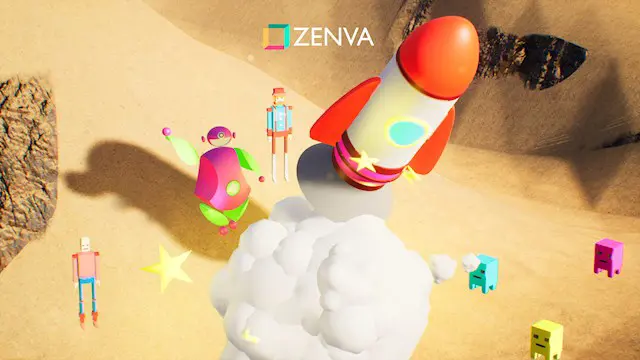
Intro to Game Development with Unity
Master the foundations of game development by exploring the popular Unity engine & the C# programming language.
Zenva Academy
Summary
- Reed courses certificate of completion - Free
Add to basket or enquire
Overview
Master the foundations of game development by exploring the popular Unity engine & the C# programming language.
Curriculum
Course media
Description
Start your journey into game development with one of the most popular game engines around: Unity.
Whether you’re looking to develop a new hobby or take on a new career path, Unity enables you to easily create cross-platform, 2D & 3D games. The engine comes with a powerful set of features that can also be used for a variety of non-game applications, including films, virtual reality, augmented reality, mobile apps, and more. With a large community, affordability, and robust asset store, it has also become a top choice for indie game developers.
In this course, you will explore the core features of the Unity engine, as well as the foundations of working with C# – the language used to operate Unity games. You’ll then be walked step-by-step through creating a simple balloon popper game, which will reinforce your knowledge and can be added to your portfolio. These lessons will provide you with the integral skills needed to pursue your future game projects, and help you to create a variety of games in some of the most popular genres like RPGs, FPS games, strategy games, and more.
You will learn how to:
- Install and set up Unity projects
- Manipulate object size, position, and rotation
- Adjust materials for different aesthetics
- Code variables, operators, and more with C#
- Combine various skills to create interactive games
- Build and deploy your games
… and more!
Who is this course for?
- Innovators looking to build their dream game projects
- Game developers wanting to explore how to work with the popular Unity engine
- Beginning coders looking for fun ways to learn game development and C#
- Self-learners seeking to understand how games are made
Requirements
No knowledge of Unity is required.
Career path
- Software Developer: £45,452
- App Developer: £55,218
- Game Tester: £24,500
Questions and answers
Currently there are no Q&As for this course. Be the first to ask a question.
Certificates
Reed courses certificate of completion
Digital certificate - Included
Will be downloadable when all lectures have been completed
Reviews
Currently there are no reviews for this course. Be the first to leave a review.
Legal information
This course is advertised on reed.co.uk by the Course Provider, whose terms and conditions apply. Purchases are made directly from the Course Provider, and as such, content and materials are supplied by the Course Provider directly. Reed is acting as agent and not reseller in relation to this course. Reed's only responsibility is to facilitate your payment for the course. It is your responsibility to review and agree to the Course Provider's terms and conditions and satisfy yourself as to the suitability of the course you intend to purchase. Reed will not have any responsibility for the content of the course and/or associated materials.


